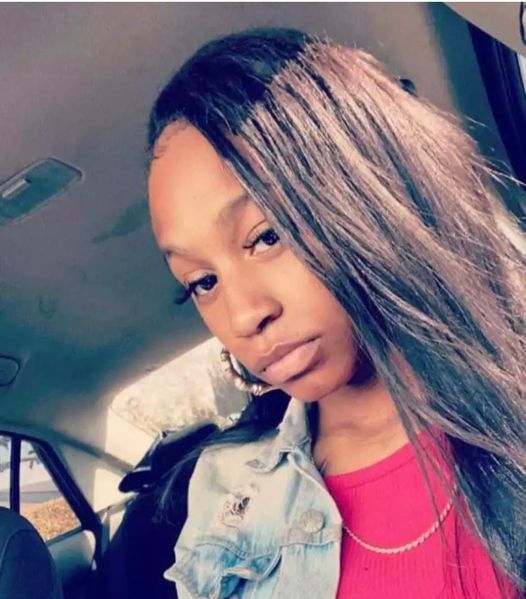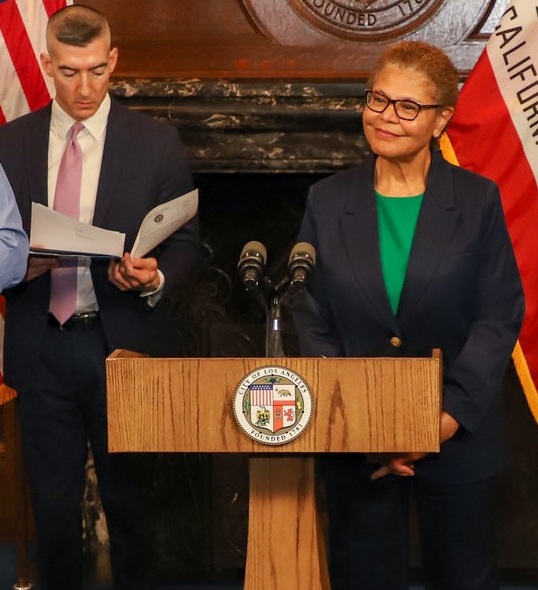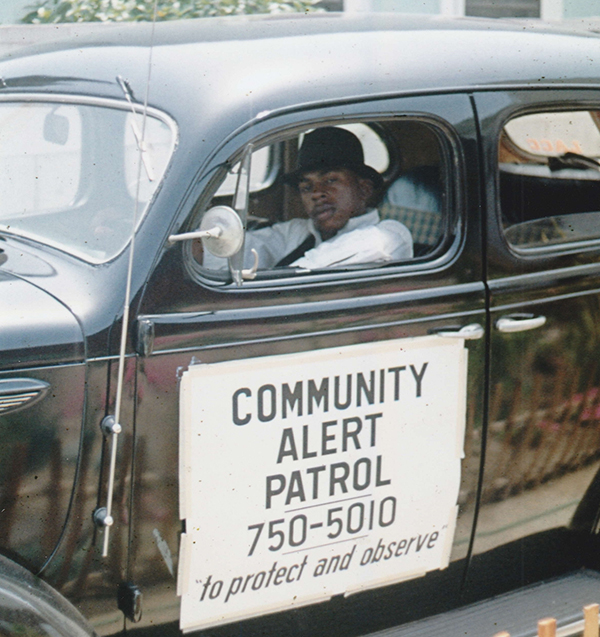By Ray Richardson
Contributing Writer
LOS ANGELES – A study conducted by the city’s Civil + Human Rights and Equity Department revealed an alarming high murder rate among Black women in Los Angeles, a trend that has gotten the attention of the City Council and could lead to legislation to help fight the problem.
Data from the 33-page report, which was presented to a committee of council members March 17, indicated that Black women made up nearly one-third of female homicides in Los Angeles over the past decade.
“This troubling situation has become a priority for council members,” Capri Maddox, executive director of the Civil + Human Rights and Equity Department, told The Wave. “The members were grateful to see this report. This is not just a law enforcement issue. It’s a community issue as well.”
Maddox and her staff worked for a year compiling data for the report, which is designed to highlight the increasing number of homicides involving Black women and the slow progress in solving the crimes.
The data was compiled from Los Angeles Police Department and LexisNexis.
Based on the report, coordinated with the Civil Rights Commission’s Office of Racial Equity, Black women represented 28.2% of reported missing women in Los Angeles over the past two years. The report also revealed that Black women account for 32.85% of the total number of female homicides in the city over the past 10 years.
“The troubling high numbers in this report underscore the urgent need to address gender-based violence,” Eighth District City Councilman Marqueece Harris-Dawson said in a statement. “The statistics call for policy that addresses the systemic factors that maintain this climate of violence against Black women.”
Harris-Dawson, Ninth District Councilman Curren Price Jr. and 10th District Councilwoman Heather Hutt were among a committee that listened to Maddox share major points of the report. Maddox said she was informed by the committee that she will have an opportunity in several weeks to make a formal presentation to the entire City Council.
The committee members assured Maddox that legislation will be introduced to address the growing concerns of violence against Black women. The legislation would include potential resources for the Los Angeles Police Department and other law enforcement agencies to develop strategies designed specifically to reduce violence against Black women and apprehension.
“I am proud to stand alongside Councilmembers Price and Harris-Dawson to highlight this data,” Hutt said in a statement. “The recent report released by the L.A. Civil Rights Department is disheartening but even more so, it is a crisis that must be met with urgency and conviction.
“These acts of egregious violence underscore how each and every day we should uplift and support the women in our communities. I look forward to working with my colleagues to deploy more direct, mutually accountable and transparent solutions to further scale up our response to protect the women in this city.”
Maddox said motivation for the report intensified after the murder of 16 year-old Tioni Theus in January 2022. Theus’ body was found near an on-ramp to the Harbor (110) Freeway at Manchester Avenue. No suspect has been charged and the case remains unsolved.
“Tioni Theus was viciously stolen from her family who are still seeking justice for her murder,” Price said in a statement. “Tragically, Black and Latina women across our city experience higher rates of violence with little attention to their pain.”
According to Price, the report brings needed attention to this crisis and called for further action.
“Though it cannot bring Tioni back, this report will help us protect more women and girls across Los Angeles,” Price said.
Theus is one of numerous cases nationally involving Black women and young girls. In 2021, approximately 2,077 Black women were killed nationwide, a 51% increase over 2019. The increase represents the largest jump of any racial or gender group during that period, according to data provided by the Centers for Disease Control and Prevention.
Between 2019 and 2021, the number of unsolved homicides of Black women and girls rose by 89% nationwide.
The report also included recommendations for the City Council, which were made with direct input from organizations such as the Jenesse Center, Peace Over Violence and Women Against Gun Violence. The three recommendations indicated investment in prevention programs for women of color, funding for organizations to ensure the longevity of “life-saving” programs and resources for those impacted communities and improving LAPD’s data collection systems, which at present do not reflect crime trends for Angelenos with intersecting identities.
“We want law enforcement to be aware of this problem, but it’s everyone’s issue, and a community issue as well,” Maddox said. “A lot of these crimes happen with people the victims are familiar with, somebody they know.
“People need to know they can feel safe going to the police. Someone in the community knows what happened to Theus. In a lot of cases, somebody knows what happened to our Black women. We can help stop these crimes.”
Ray Richardson is a contributing writer for The Wave. He can be reached at rayrich55@gmail.com.











